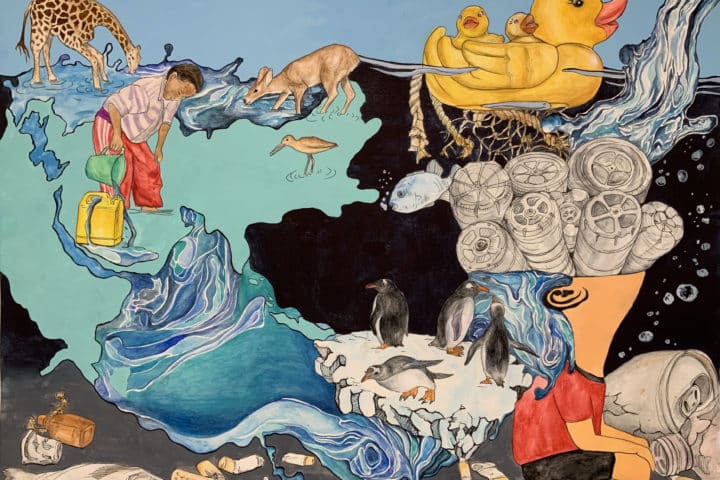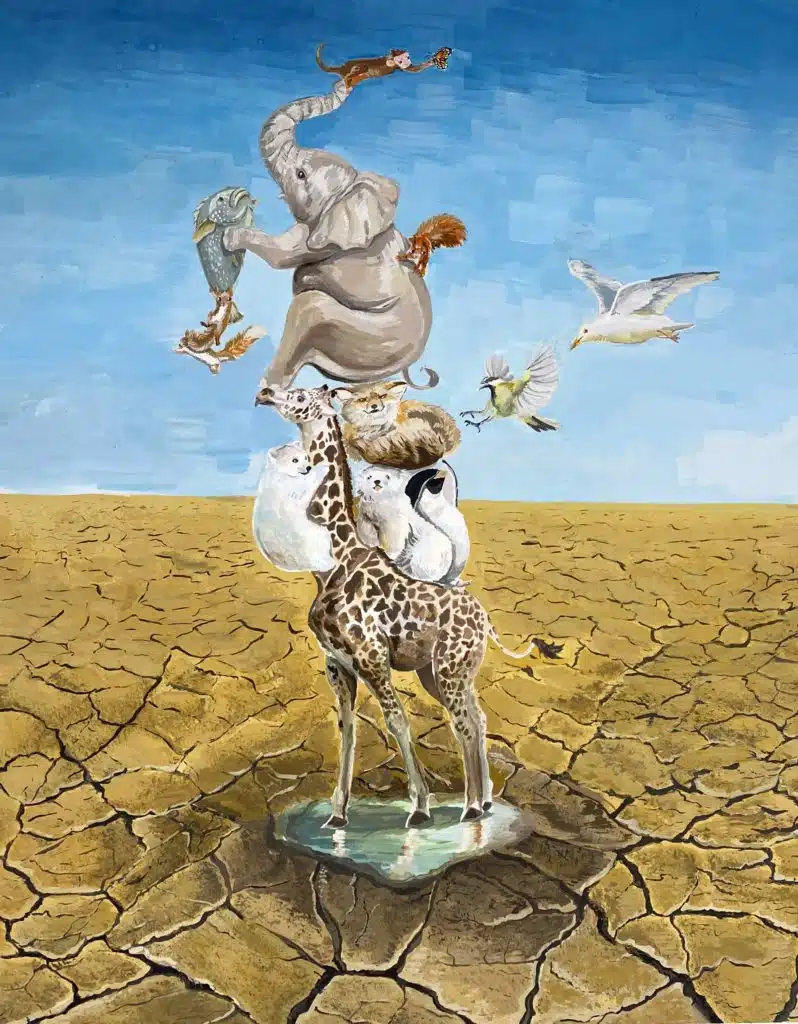
Waves of Change: Ocean Awareness in Landlocked Countries
October 10, 2024By Charmaine Mupara, 2024 Future Blue Youth Council member
The connection between landlocked countries and ocean advocacy is often underestimated. I’ve frequently been questioned about why I advocate for oceans while living inland, and my response is always to “think outside the box.” We cannot allow borders to hinder our pursuit of a sustainable future. There are many aspects to addressing the climate crisis, and only a handful of people are available to provide assistance. Ocean advocacy is not significantly different from any work conducted inland; in fact, oceans are intricately linked to us. The nearest river to you flows and eventually empties into the ocean. There’s a popular saying in computer science that goes, “garbage in, garbage out,” indicating that what you input determines what you receive as output. Whatever enters your local river eventually finds its way to the ocean.

“A Desert World” by Chloe Heller, 2022
Additionally, deforestation is closely linked to the oceans. While tree felling itself is not detrimental because rural communities require it for firewood, the issue arises when they neglect to replant the trees they’ve cut down. Regardless of the reason, deforestation has become a crisis with a ripple effect. This results in an abundance of carbon dioxide in the atmosphere, which prompts our oceans to absorb more carbon dioxide than necessary, leading to ocean acidification and, ultimately, the destruction of coral reefs. These same coral reefs support over 25% of ocean life and, regrettably, serve as a food source for inland populations.
Ocean advocacy comes from recognizing how small community actions continuously impact the environment. These little actions contribute to significant outcomes, whether positive or negative. Developing environmentally friendly habits can help achieve sustainable objectives.
By advocating for ocean protection, inland communities help safeguard global ecosystems, climate stability, and economic well-being for everyone.

“Plastic Planet” by Vyusti Kumaar, 2015
Being part of the Future Blue Youth Council (FBYC) has provided me with the necessary tools for understanding why what happens inland is just as important as what happens in the oceans and has sharpened my knowledge of climate change. It has also helped me become a better climate change activist as I now know what needs to be done in order to tackle the climate crisis. To be part of the change, we ought to be brave enough to break the barriers and see beyond our borders.
What can you do to help with the climate crisis?
- Join the FBYC: learn why oceans truly need all hands on deck and fall in love with learning about ocean life while also actively participating in protecting them no matter where you live.
- Voice your thoughts on climate change through artivism (artistic activism) by entering Bow Seat’s annual Ocean Awareness Contest.
- Join the GenSea network and other platforms for young creatives to learn and become part of the change.
- Join river clean-ups
- Help plant trees, which you can do by joining local environmental organizations as a volunteer.
